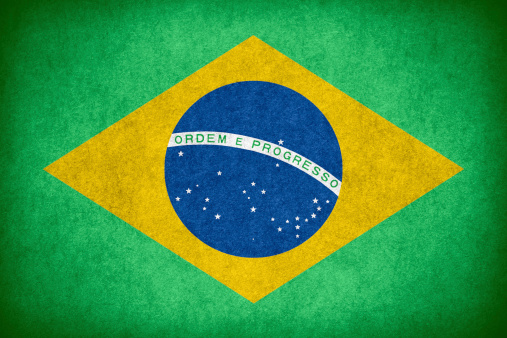Commodities & Metals
Brazil Elections a Mixed Bag for Commodities
Published:
Last Updated:

Sugar prices are down more than 2.5%, while coffee prices have recovered a little to post a small gain, and soybeans and beef have also risen. Brazil is the world’s top exporter of all these commodity goods, and it produces significant amounts of corn and cotton. The country is also a large importer of wheat.
Brazil’s currency has weakened by more than 2% Monday, and that will have the effect of encouraging export sales of commodity products traded in dollars. Oil, which the government controls, most likely will be unable to take advantage of the good export environment, but sugar growers may be looking at a potential windfall.
Brazilian iron ore miner Vale S.A. (NYSE: VALE) has dropped nearly 7% so far Monday, but that is due primarily to a weak global market for iron ore. Ethanol producer Cosan Ltd. (NYSE: CZZ), down about 8% so far, also likely would have benefited if Rousseff’s opponent, Aecio Neves, had won.
Neves was expected to lift the price cap on gasoline, and that would have pushed up ethanol prices as well. Rousseff is expected to continue capping gasoline in an effort to curb Brazil’s inflation. In a note Monday morning, Fitch ratings had this to say:
Corporates in the electricity sectors, as well as those in the sugar and ethanol industry, are the most vulnerable to negative rating actions. Iron ore and pulp producers will face weak external market conditions due to oversupply, but are not likely to be downgraded, as their costs positions allow them to continue to generate positive cash flow. The protein sector stands out as a sector that could have more positive than negative rating actions. Low grain prices and growing demand for proteins should continue in 2015; balance sheets are projected to strengthen due to strong operating performance.
Oddly, Fitch had nothing to say about coffee in its note. That is likely due to the continuing impact of Brazil’s drought, which has taken a huge toll on the country’s coffee crop.
ALSO READ: Countries With the Widest Gap Between Rich and Poor
The Average American Has No Idea How Much Money You Can Make Today (Sponsor)
The last few years made people forget how much banks and CD’s can pay. Meanwhile, interest rates have spiked and many can afford to pay you much more, but most are keeping yields low and hoping you won’t notice.
But there is good news. To win qualified customers, some accounts are paying almost 10x the national average! That’s an incredible way to keep your money safe and earn more at the same time. Our top pick for high yield savings accounts includes other benefits as well. You can earn up to 3.80% with a Checking & Savings Account today Sign up and get up to $300 with direct deposit. No account fees. FDIC Insured.
Click here to see how much more you could be earning on your savings today. It takes just a few minutes to open an account to make your money work for you.
Thank you for reading! Have some feedback for us?
Contact the 24/7 Wall St. editorial team.